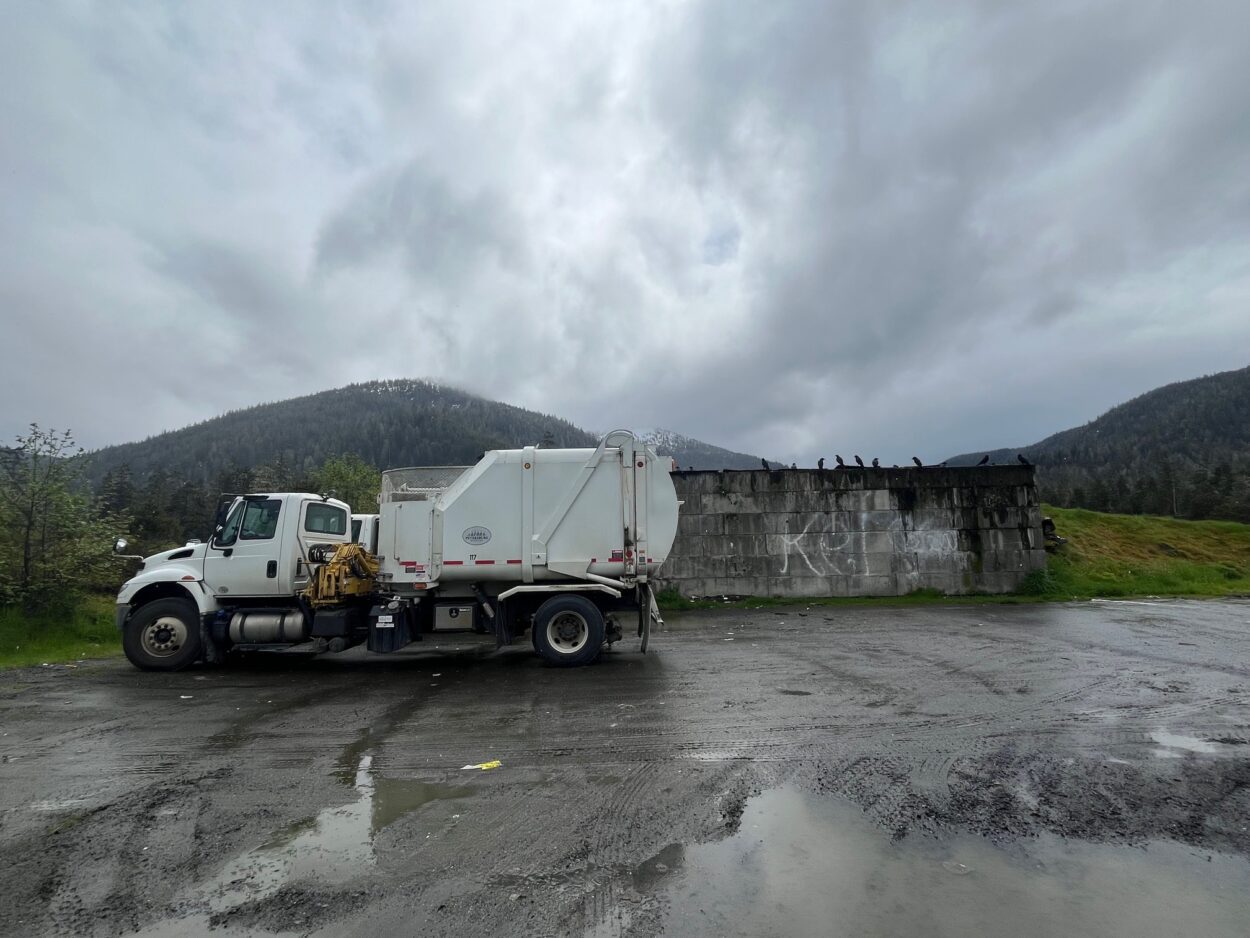
In Southeast Alaska, towns can’t just truck their garbage down the highway to a shared landfill. The region is an archipelago with few road connections. Chris Cotta is Petersburg’s Director of Public Works.
“It’s a very complicated, lengthy and costly process to take the waste that we generate here and dispose of it down south,” he said.
The Southeast Alaska Solid Waste Authority, or SEASWA is an organization working to reduce the cost of trash disposal in Southeast Alaska. It’s won a half-million dollar grant from the Denali Commission to study whether there are cheaper, more efficient ways to get rid of garbage in Southeast Alaska.
Cotta is chair of SEASWA. He said a lot of municipalities compress their trash into giant blocks called “bales” and barge it down to the Lower 48. He said the cost of shipping those bales is a huge challenge.
Last year the Petersburg Borough signed a trash disposal contract that was 34% more expensive than the last one. Wrangell’s trash disposal costs went up 30% around the same time. Cotta said that’s common in Southeast.
“Those types of cost increases are hopefully not going to be continuous, but they are a lot of burden to bear for the ratepayers that have to, you know, ultimately pay the garbage bill every month to support these kinds of costs,” he said.
SEASWA is made up of nine member communities in the region: Wrangell, Petersburg, Tenakee Springs, Hydaburg, Thorne Bay, Craig, Klawock, Kasaan, and Coffman Cove. While some of the larger communities in the area aren’t part of the organization, Cotta said they will be looking at solutions for all of Southeast.
“Is there something maybe the communities could coordinate on? A lot of communities are kind of going it alone? And so this type of study would pull everybody in and say, ‘Hey, you know, maybe if we all put our minds together and and pool our resources, there’s a better way to do things for everyone,’” he said.
There is no deadline to spend the Denali Commission funding, but Cotta estimates the research will take two to three years. He said it’s possible they’ll find that baling and shipping garbage south is still the most effective way to deal with trash, but he hopes there are some cheaper, more environmentally friendly alternatives.











